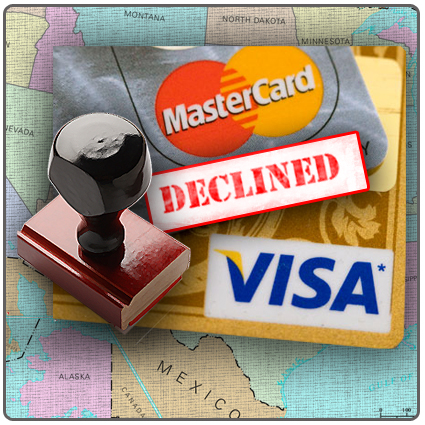
Reality will hit our elected representatives in about 11 weeks. Right now, they are searching their government wallets for the other credit card. Well folks, there is no Visa or second credit card in the government wallet. As a government, we have been in this position before but never with a staggering debt of $14.3 trillion dollars. Default is really not an option but as House Speaker John Boehner of Ohio said recently, “To raise the current debt ceiling without a plan to cut spending, is totally irresponsible.” I couldn’t agree more.
The debt limit is the amount of money the government can borrow to help finance its operations. We have reached that limit because the government has grown accustomed to borrowing massive amounts of money. The latest estimate is that it borrows 40 cents for every dollar it spends. Just as anyone that has ever lost a job or had their position eliminated for one reason or another, there is an initial shock. However, the reality will set in during the coming weeks as the government bills come due. Right now, the U.S. Treasury Secretary is searching the couch for extra coins and gathering the bottles to take to the grocery store for the deposit money. Timothy Geithner said today that he will halt investments in two big government pension plans to allow the government to continue to borrow money for the next few months. Mr. Geithner also said that with “unexpected revenue and bookkeeping maneuvers” the government could survive another 11 weeks. This should make all of us feel real secure.
Many economists are worried. Currently, the financial markets are not spooked. As the August deadline approaches, uncertainty would translate into significant financial market volatility. Without the authority to borrow, the U.S. Treasury Secretary knows that incoming cash would cover less than two-thirds of federal spending at current rates. The Treasury’s options could quickly get tough like furloughing thousands of federal employees deemed nonessential. These same economists warn that even approaching the brink of default on Treasury debt could have additional serious consequences as investors could start viewing Treasury bonds less as a “risk free” haven and more like any other investment which would result in an even weaker U. S. dollar and higher interest rates for federal borrowing as well as an adverse affect on domestic borrowing.
To make matters worse, the Treasury Department reported that China, the biggest buyer of U.S. securities, trimmed its holdings for a fifth straight month in April. China has cut its holdings by $9.2 billion dollars to $1.14 trillion dollars. What would happen if the U.S. Treasury Bureau of Public Debt goes out to fund $169 billion dollars of debt coming due and there are not enough buyers to cover the full $169 billion? The U.S. Government would default on its debt if it did not have the resources to pay bondholders the interest or principal payments as they come due.
Am I the only one that is starting to sweat? As one former Treasury Department spokesperson said “This, in the economic area, is the equivalent of nuclear war. It is like telling the world that the U.S. can’t get its act together and that this is basically a circus.”








